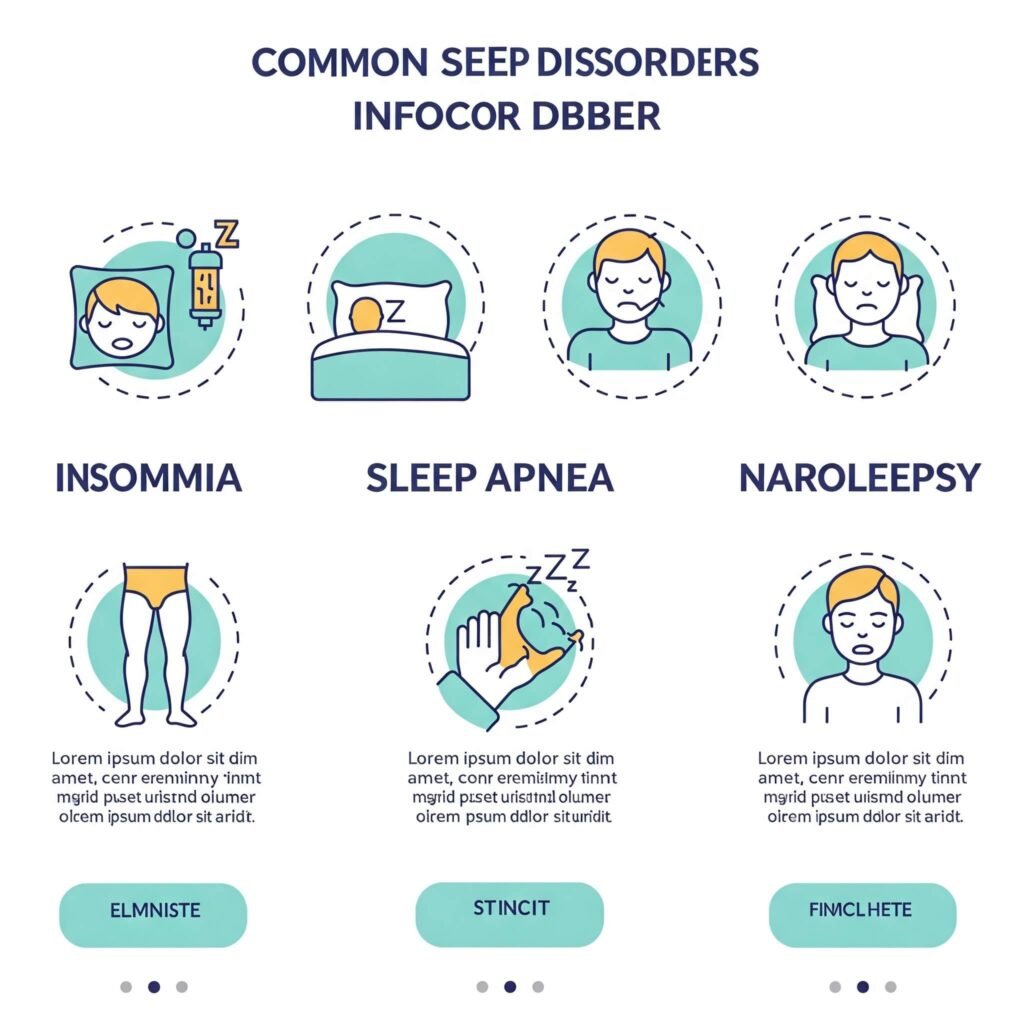Sleep disorder education is the key to unlocking better health and happiness. Millions of people worldwide struggle with sleep issues like insomnia, sleep apnea, or restless leg syndrome, often without realizing the profound impact on their physical and mental wellbeing. By understanding sleep disorders and their solutions, you can take control of your sleep health and transform your life. This article explores why sleep disorder education matters, offering actionable insights and real-world examples to help you prioritize rest.
What is Sleep Disorder Education?
Sleep disorder education involves learning about the causes, symptoms, and treatments of conditions that disrupt sleep. From insomnia to narcolepsy, these disorders affect sleep quality, energy levels, and overall health. According to the National Sleep Foundation, over 50 million Americans suffer from sleep disorders, yet many remain undiagnosed due to lack of awareness.
Why It Matters: Without education, people may dismiss symptoms like chronic fatigue or snoring as “normal,” delaying treatment. For example, untreated sleep apnea can increase the risk of heart disease by 30%, per a study by the American Heart Association.

The Impact of Sleep Disorders on Your Wellbeing
Sleep disorders don’t just make you tired—they wreak havoc on your body and mind. Here’s how:
- Physical Health: Poor sleep increases the risk of obesity, diabetes, and cardiovascular issues. For instance, Jane, a 45-year-old teacher, ignored her sleep apnea symptoms for years, only to face high blood pressure and weight gain. After education and treatment, she lost 20 pounds and regained energy.
- Mental Health: Insomnia and other disorders are linked to anxiety, depression, and reduced focus. A 2023 study found that improving sleep quality reduced depressive symptoms by 25%.
- Daily Performance: Lack of sleep impairs decision-making and productivity. Imagine missing deadlines or snapping at loved ones because you’re exhausted.
Key Takeaway: Sleep disorder education empowers you to recognize symptoms early and seek help, protecting your wellbeing.

Why Sleep Disorder Education is a Game-Changer
Educating yourself about sleep disorders can transform your life. Here are three reasons why:
- Early Detection Saves Lives: Recognizing signs like loud snoring or daytime sleepiness can lead to timely diagnosis. For example, Mike, a truck driver, learned about sleep apnea through a workplace seminar and got a CPAP machine, reducing his risk of accidents.
- Better Treatment Options: Education helps you explore solutions like cognitive behavioral therapy for insomnia (CBT-I) or lifestyle changes. The Mayo Clinic notes that CBT-I is as effective as medication for many patients.
- Improved Sleep Hygiene: Learning sleep tips—like avoiding screens before bed or maintaining a consistent schedule—boosts sleep quality.
Actionable Tip: Start a sleep journal to track your habits and symptoms, then discuss them with a doctor.
How to Access Sleep Disorder Education
Ready to prioritize your sleep health? Here’s how to get started:
- Online Resources: Websites like the Sleep Foundation offer free guides on sleep disorders.
- Healthcare Providers: Consult a sleep specialist for personalized advice. Many clinics offer sleep studies to diagnose conditions.
- Community Programs: Look for local workshops or webinars on sleep health. For example, hospitals often host free sessions during Sleep Awareness Week.
- Apps and Tools: Apps like Headspace provide sleep-focused meditations to improve relaxation.
Real-World Example: Sarah, a busy mom, used an online course to learn about insomnia. By implementing a bedtime routine, she reduced her sleepless nights from five to one per week.

Practical Tips to Improve Your Sleep Health
Sleep disorder education isn’t just about awareness—it’s about action. Try these evidence-based tips:
- Stick to a Schedule: Go to bed and wake up at the same time daily, even on weekends.
- Create a Sleep-Friendly Environment: Keep your bedroom dark, quiet, and cool (around 65°F, per the National Sleep Foundation).
- Limit Stimulants: Avoid caffeine and alcohol at least six hours before bed.
- Practice Relaxation: Use deep breathing or progressive muscle relaxation to calm your mind.
Pro Tip: If symptoms persist, ask your doctor about a sleep study to uncover hidden disorders.
The Bigger Picture: Sleep Health for All
Sleep disorder education isn’t just for individuals—it’s a public health priority. Schools, workplaces, and communities can promote sleep awareness to improve productivity and reduce healthcare costs. For example, a 2024 initiative by the CDC trained teachers to spot sleep issues in students, leading to better academic performance.
By spreading knowledge, we can create a world where everyone enjoys restful, restorative sleep.
Conclusion
Sleep disorder education is crucial for your wellbeing, empowering you to recognize, treat, and prevent sleep issues. From protecting your physical and mental health to boosting daily performance, understanding sleep disorders unlocks a happier, healthier life. Start today by exploring resources, tracking your sleep, or consulting a specialist. Your body and mind will thank you.
































